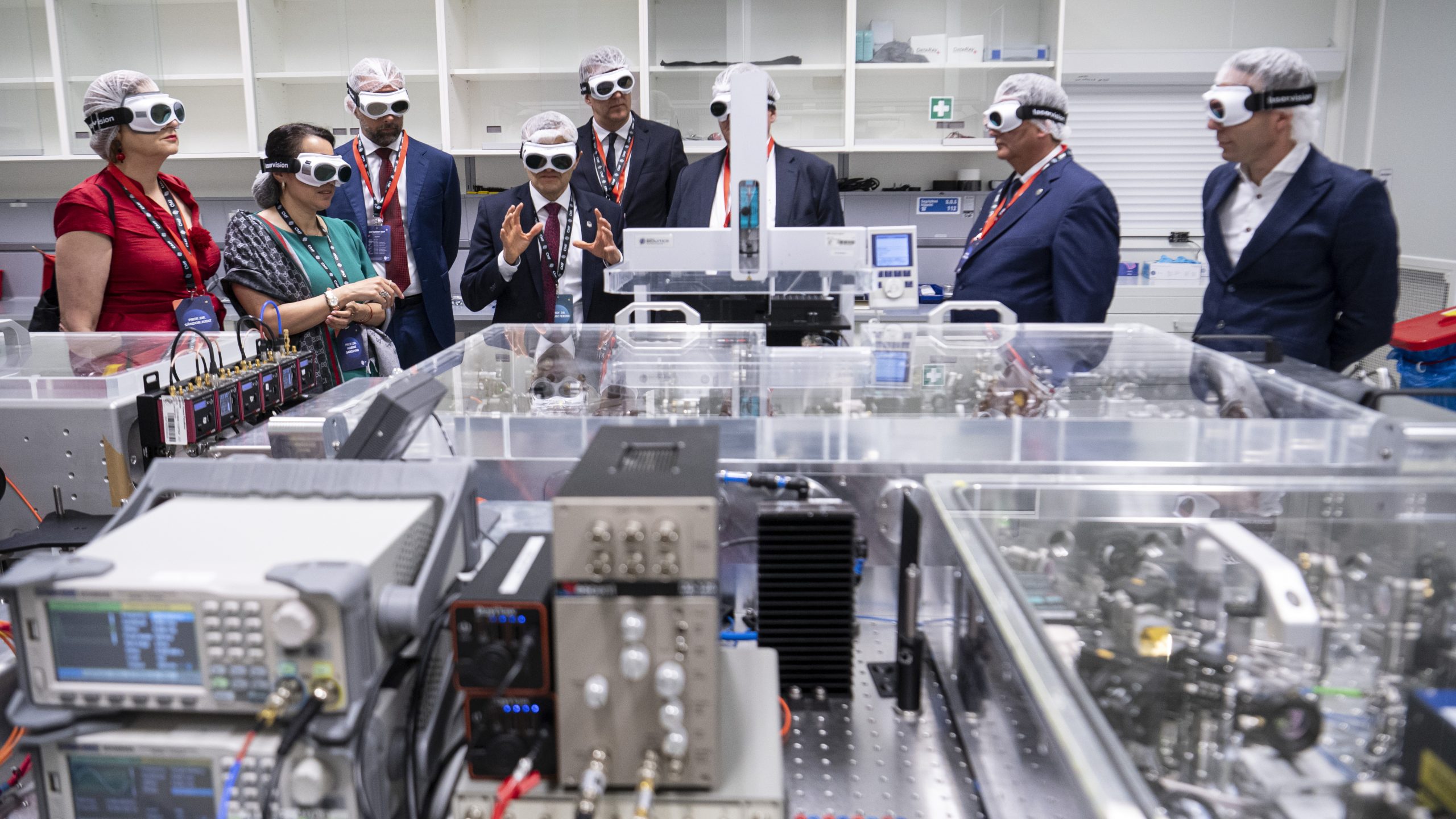
President Honors two of the great Hungarian scientists of our time.Continue reading

Nobel Prize awarded scientist, Prof. Ferenc Krausz, leading the Center for Molecular Fingerprinting (CMF), highlighted the recent opening of their state-of-the-art laser laboratory in Szeged (southern Hungary) and its pivotal role in the Health For Hungary study in an interview to InfoStart.
The laboratory’s primary mission is to meticulously analyze a vast array of blood samples collected from tens of thousands of volunteers over several years. Currently, the project has amassed 47,000 samples, with over 2,000 new samples arriving monthly. Utilizing advanced laser technology, the laboratory aims to scrutinize these samples to discern subtle molecular changes that may signify the onset or progression of various diseases.

Prof. Ferenc Krausz. Photo: Nobel Prize
Prof. Krausz underscored the groundbreaking nature of their approach, particularly in its application to cancer detection.
He noted that their method has successfully identified measurable indicators associated with eight types of cancer. In some cases, such as lung cancer, their technique can differentiate between different stages of the disease based on infrared molecular fingerprinting. The laboratory’s ability to detect increasingly complex disease markers aligns with their broader objective of expanding research beyond cancer. They intend to explore the applicability of their method to prevalent conditions like cardiovascular diseases, metabolic disorders, and respiratory ailments—collectively responsible for 75% of premature deaths worldwide.
Reflecting on his trajectory as a physicist awarded the Nobel Prize for his work on attosecond lasers, the Professor explained his transition to medical research.
He emphasized a shift from fundamental research towards endeavors that could tangibly improve human health.
The laboratory in Szeged, now one of only two in the world equipped to conduct such detailed analyses using ultra-fast laser technology, stands as a testament to their pioneering efforts.
Addressing the concept of molecular fingerprinting, he clarified that each individual’s blood sample exhibits distinct molecular characteristics. This uniqueness forms the basis for their method, allowing them to potentially detect deviations indicative of disease without comparing them to a standard or healthy reference group.
Prof. Krausz acknowledged that while this hypothesis is promising, further research is needed to validate its practical application on a larger scale.
Despite the transformative impact on his career of receiving the Nobel Prize, Krausz admitted that it has necessitated a significant adjustment in his professional priorities. With heightened public visibility, he feels a greater responsibility to advocate for scientific research and inspire future generations of scientists. He views his current position as an opportunity to promote the immense potential of laser physics, molecular biology, and their intersection in advancing preventive medicine.
In conclusion, Prof. Krausz emphasized the dual significance of the laboratory’s advancements: advancing scientific knowledge in a groundbreaking field and leveraging newfound recognition to foster scientific curiosity and innovation. His dedication to pushing the boundaries of scientific discovery underscores his commitment to improving health outcomes through innovative research and technology.
Via Infostart; Featured Image: MTI / Szigetváry Zsolt